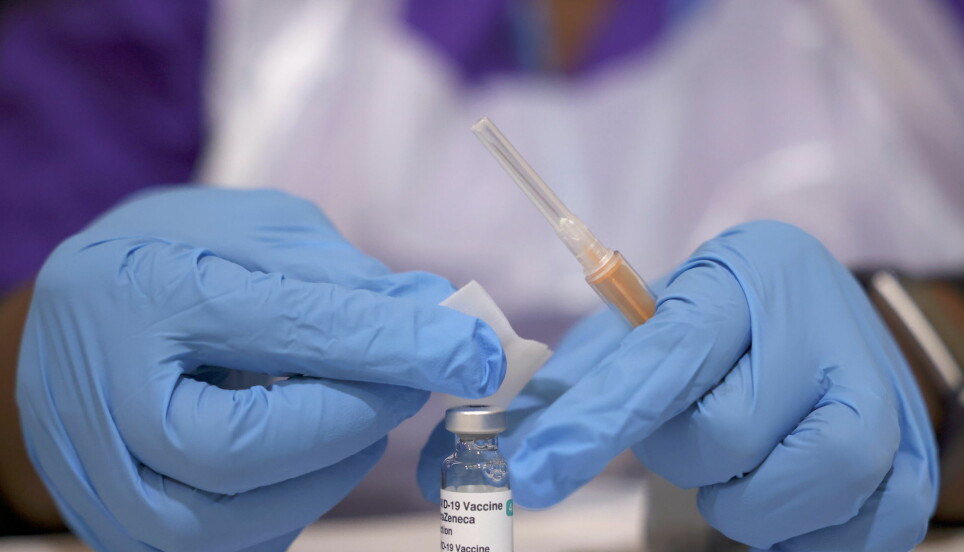
EMA: Blood clots should be listed as a very rare side effect from the AstraZeneca-vaccine
222 cases of blood clots could be connected to the AstraZeneca vaccine, according to the European Medicines Agency (EMA). They are still convinced the benefits from the vaccine outweigh the risks.
The EMA confirms that there is a possible connection between the vaccine and the rare blood clot condition that was first reported in Norway.
The agency could not point to specific risk factors, like age or gender, but stated that most of the cases were found in women under 60.
The European Medicines Agency firmly stated that they believe the benefits from the vaccine outweigh the risk posed by these side effects.
"COVID-19 is associated with a risk of hospitalisation and death. The reported combination of blood clots and low blood platelets is very rare, and the overall benefits of the vaccine in preventing COVID-19 outweigh the risks of side effects," writes the agency in a press release.
222 cases among 34 million
The agency has only uncovered 222 cases of blood clots that could be connected to the vaccine, said Dr. Sabine Straus, chair of the EMA safety review committee during a press briefing this Thursday.
Approximately 34 million people have taken the AstraZeneca-vaccine in Great Britain and the European Union, according to Straus.
169 of the blood clots were located in the brain, 53 were in the stomach. All cases had the rare combination of blood clots, bleeding and low levels of platelets. All of the patients had also received the AstraZeneca-Vaccine.
Will make it easier to receive treatment
"I can't say that I'm happy. This is actually a day of mourning. But we've remained consistent in thinking that health workers and patients should be made aware of this," said Steinar Madsen, Medical Director of the Norwegian Medicines Agency, to the Norwegian newspaper Dagbladet.
Awareness among health workers and the general public would make it easier for those who experience the very rare side effect to receive treatment, according to Madsen.































